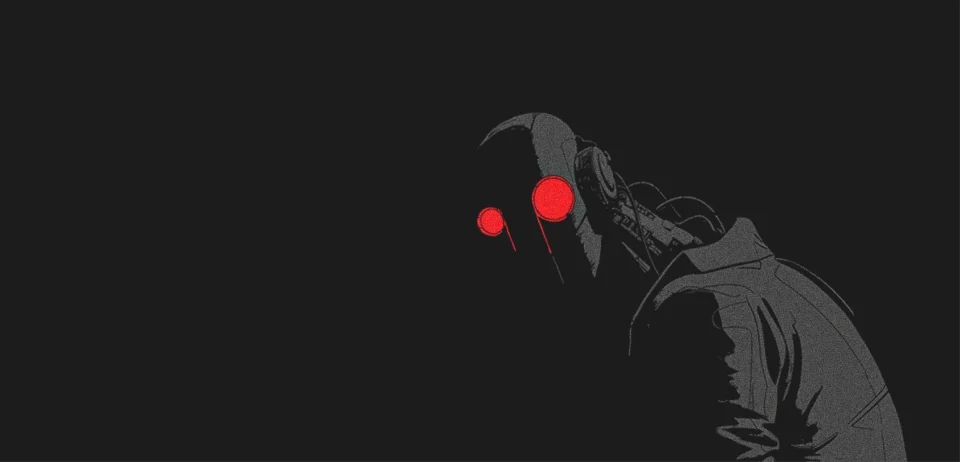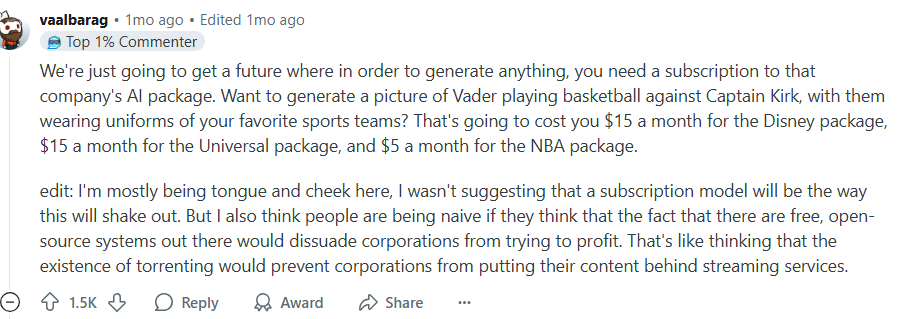
Midjourney Lawsuit: A Way to Destabilize Art or Democratize?
A Midjourney lawsuit was inevitable. On June 11, 2025, The Walt Disney Company and NBCUniversal filed a federal lawsuit against Midjourney, the startup behind the popular AI image generator, in the Central District of California.
Sooner or later, major brands that make millions and billions off their IPs (Intellectual Properties), such as Warner Bros, Pixar, Marvel, DC, etc., will raise questions and file lawsuits.
There was a Ghibli trend, where ChatGPT produced Ghibli-fied images of users and scenarios. Users and many brands were enthusiastic about utilizing the new tech. The never-escaping question of intellectual property somehow slipped into the shadows.
In this article, we will explore the threat to IP and the hypocrisy of studios.
Midjourney lawsuit, the first Hollywood class-action against AI
Last month, Mickey Mouse and NBCUniversal filed a joint federal lawsuit against Midjourney, a popular text-to-image generation startup where users create highly stylized, character-scenario-driven images.
The complaint alleges that Midjourney trained its model on hundreds of millions of copyrighted images without permission and continues to produce reproductions of iconic characters like Yoda, Darth Vader, Elsa, Shrek, Spider‑Man, Minions, The Boss Baby, and The Lion King.
“Midjourney is the quintessential copyright-free-rider and a bottomless pit of plagiarism.”
Disney & NBCUniversal
The entertainment companies are also demanding statutory damages of up to $150,000 per infringed work and Midjourney’s profits and are looking for a court injunction requiring the company to implement robust filtering systems.
Disney is infamous for its refusals in copyright and IP cases. In the UK, there was a case involving Spider-Man and a grieving father. The father had lost his 4-year-old child and wanted to etch Spider-Man on the gravestone. Disney outrightly rejected the petition and denied giving a hearing on it.
Even an MP from the British Parliament wrote to the company, but nothing could move the Disney executives.
Hollywood is not so kind, so take this with a pinch of salt
Hollywood is known for its unkindness towards unions, artists, and employees. While Disney is pushing ahead to battle Midjourney and AI companies, these big giants take the first train to AI wonderland when it comes to artists and writers.
Subscribe to our bi-weekly newsletter
Get the latest trends, insights, and strategies delivered straight to your inbox.
These Hollywood companies want and demand AI in certain cinema or series departments. Whether it is in writing or acting, creating special effects, or modulating voices, Hollywood giants are open to exploring and expanding through AI.
There have been protests against AI usage in the industry in recent years. Numerous movies and shows have pinpointed the rise of ‘bad robots’ like Ultron or AI taking over continents. But Hollywood is different from these Hollywood companies.
This year’s Oscar-winning film, ‘The Brutalist‘, used AI. The AI voice modulation gave Adrian Broady’s speech a perfect Hungarian accent. The studios are not shying away from using AI.
While there are gains, there are cons to this overwhelming tech in filmmaking. Numerous jobs are in vulnerable positions. From set designers to backstage actors, or even B-list actors, can easily be replaced by AI.
Hypocrisy of Hollywood studios
However, studios face problems when tech companies try to train their LLM or Gen AI on available IPs and copyright materials.
Studios like Disney want the benefits of AI when it boosts productivity or cuts costs internally. Still, when external tech companies like Midjourney tap into their intellectual properties for training or generation, suddenly it’s a legal and ethical crisis.
The double standard is glaring. On one hand, studios are experimenting with synthetic voices and AI-generated extras to reduce reliance on human labor; on the other, they’re drawing hard lines around ownership and creative control when someone else’s AI starts mimicking Mickey Mouse or Marvel heroes.
It’s not a rejection of AI—it’s a rejection of losing control over it.
Democratization or destabilization of art through Midjourney Lawsuit
Tech companies such as Meta and OpenAI are already vying for open source and hoping for the removal of IP laws in the future. They are proposing that the American government remove the existing copyright rules.
This poses a remarkable question. Is this a step towards democratizing art? If AI and LLMs train on existing IPs and copyright materials, users can readily create their own worlds and sell them to others.
There is a YouTube creator, AI FlickNips, who gained over 1.5 million views on his AI-generated Star Wars gaming video. Users, especially the modern generation, demand and desire to live the nostalgia they have never experienced before.
According to Adobe’s 2025 Forecast on Creativity, retrofuturism is one of the big trends in marketing and design. Consumers are craving creatives packed with nostalgia and immersive sensory appeal.
But with democratization comes destabilization.
If copyright is weakened or abolished to make room for open-source AI creativity, the very foundation of creative industries could be eroded. Artists, writers, designers, filmmakers, and game developers would lose leverage over their original works.
Building a sustainable creative career becomes increasingly complex when anyone with access to an AI model can remix, clone, or commercially exploit your style, characters, or narratives.
The risk isn’t just to legacy brands like Disney or Star Wars—it’s also to the independent illustrator, the small animation studio, or the freelance storyteller trying to survive in a saturated market.
Without enforceable IP laws, creative work becomes a free-for-all, and the economic value of originality starts to collapse.
Solutions and variables may grant users their wish
Despite the legal turbulence, pathways are emerging that could allow users to continue generating nostalgic, immersive content they love, within a more structured framework.
One Reddit user simply proposed a scenario in which these AI startups and entertainment studios can collaborate, and charge users double or triple what they currently pay, just like streaming services.

If AI platforms adopt training sets that are license-compliant or artist-approved, they may preserve both originality and legality. Ultimately, the future could strike a balance where users gain access to powerful creative tools and creators—whether independent or corporate—get fair recognition and compensation.
The tension between innovation and control isn’t binary; it’s a matter of negotiation, design, and incentive.
Cut to the chase
The Midjourney lawsuit highlights the collision between Creativity, technology, and the law. On one side, Midjourney represents the excitement of generative AI, a tool capable of imaginative exploration and mass creativity. On the other hand, Disney and Universal stand disguised as saviors (are they really?) of century-old IP cultures built on exclusive storytelling.


